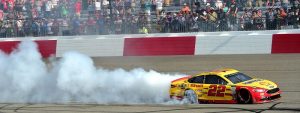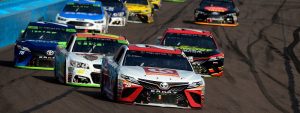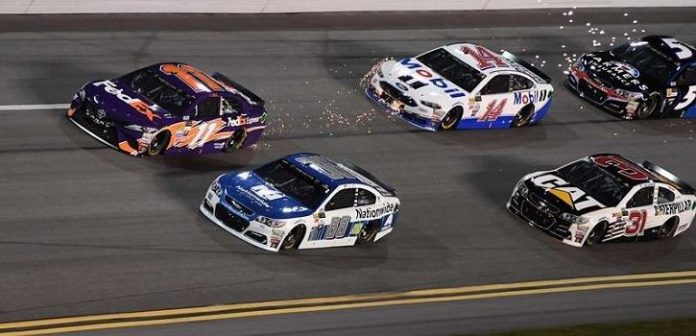The National Association for Stock Car Auto Racing (NASCAR) has its roots in the South. Originally, it featured dirt track racing and moonshine running. It has always enjoyed a huge following in the Southern states. Thousands and thousands of screaming crowds would buy tickets for the races, which tended to sell out.
Lately, however, NASCAR ticket sales have started to drag. And, one retired racer thinks he knows the answer – gambling.
NASCAR’s Troubles

There have been NASCAR races in the South since the 1930s. The crowd that views the races have been predominately Southern White males. Currently, NASCAR has some growing pains. The sport has not marketed to any other demographic besides white males. This is, by far, the largest population that watches NASCAR. In marketing only to this demographic, NASCAR has been left in the dust. Black and Hispanic viewers increasingly watch football, basketball, and soccer—if they watch at all.
NASCAR has faced several hurdles in the last five years. The television ratings have begun to sag. There is a drop in attendance. And, there has been a decline in the number of sponsors for the sport. In the past, liquor and tobacco companies sponsored NASCAR races. However, the sport has increasingly seen those sponsorships dwindle down to nothing. While a few companies remain faithful, such as Home Depot and Coca-Cola, other sponsors have fled for other opportunities.
The Possibility of Gambling
Elliot Sadler, a former NASCAR driver, said NASCAR needs to embrace gambling at race tracks to prop up sagging attendance. Several states that hold NASCAR races, including Delaware, Pennsylvania, West Virginia, and Nevada, all allow sports gambling.
NASCAR has floated two possible scenarios. The first is to add a window to the race track to facilitate gaming. The second is to set up mobile betting in an 18-wheeler. Both would allow gaming at race tracks. In addition, online betting in Pennsylvania, Nevada, and New Jersey would allow sportsbooks to bet on specific races. According to Sadler, NASCAR is far behind in its thinking with regard to its gaming practices.
Sadler said NASCAR could also use gaming to prop up sponsorship of its drivers. Driving and maintaining a car at the professional level is very expensive, and additional sponsors mean additional revenue.
The Future of Car Racing in the United States

Sadler says NASCAR must find ways to expand its customer base. In fact, race enthusiasts have argued the racing car league is no different than horse racing. Both cars and horses need people to drive them to function. Pari-mutuel betting occurs at horse racing tracks across the United States, enthusiasts say. They support the idea of this happening at NASCAR tracks as well. Fans could then bet on several different races over a racing weekend.
In addition to betting on NASCAR, fans should be able to bet on Indy Car racing. While the Indy Car League is not as big as NASCAR, there are many fans who attend the Indianapolis 500. As with NASCAR, people could use pari-mutuel betting on multiple races at one time.
Critics say gambling on car racing may be one way to bring the fans back. But, they believe there are other ways to improve the sport. Changes in the rules at both NASCAR and the Indy car racing circuit have affected the number of fans who attend. Many fans have said that rules changes mean slower cars. Slower cars mean slower races, which means fans become bored more easily. According to fans, slower races are longer races and there are fewer crashes. Many fans want to see the drivers mix it up, and are unhappy that no longer happens.
Disclaimer: All images are copyright to their respective owners and are used by USA Online Casino for informational purposes only.












